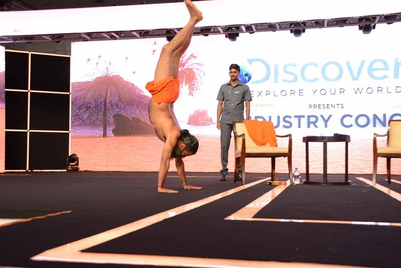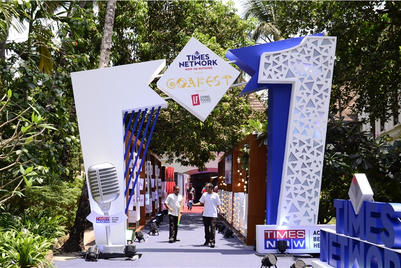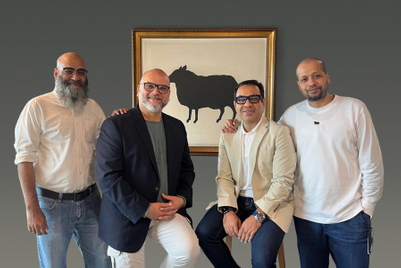
In 1935, Paul Brunton, author of the classic “Search in Secret India” which chronicled his quest for a guru wrote, “The holy man fulfills no useful economic function in the country”. Today, what Brunton observed, is no longer the case. And one doesn’t have to search for evidence. It is there for all to see and experience. Baba Ramdev’s Patanjali’ which boasts revenues of more than INR 5,000 crore is the most prominent manifestation of the same. Indeed, today’s gurus have emerged on the socio-economic-political front with unprecedented scale and speed. This in turn has led to both established firms and entrenched political parties to craft a response and engagement strategy with this new stakeholder.
Last year, Kishore Biyani’s Future group tied-up with Baba Ramdev's Patanjali for an exclusive partnership, making its entire range of products available in Big Bazaar outlets across the country. According to some reports, the Madhya Pradesh government is currently in talks with Patanjali to put their products in Fair Price shops across the state. The belief is that this range can reverse the plummeting fortunes of these state-run co-operative stores. Thes Fair Price shops may not be profitable, but they have an unprecedented reach, not to mention the sanction of the government. There will be many more seeking similar partnerships and alliances.
Indeed, the politico-entrepreneurial babas or gurus who earlier basked in the company of the rich and the powerful, or attracted disciples in the form of Bollywood stars searching for nirvana, have now arrived on the national stage as an independent stakeholder. They are increasingly exercising a growing influence on the nation’s body politic, through content and business channels.
How did this happen?
The experimentation of religious gurus by organising society along curated economic norms is not new. In fact, Brunton writes about visiting the Great Master of Dayalbagh, Anand Swarup, where his followers participated in economic activity and how the idea was for such communities to be financially viable in long term. Interestingly, as Brunton reported, there were distinct points of view on economic ideology propagated by this group, which was in sharp contrast to a say, a Gandhian perspective which denounced large scale modern industry, for example. There is no way to verify the actual conversation but Brunton alluded that the guru had been requested by Gandhi to join the freedom struggle, an offer he politely declined, apparently.
So why didn’t some of gurus gain self-sustaining momentum then but were limited to piggy-backing on celebrities. (Of course some never quite wanted to explore the public domain, but others did.) And what is distinctly different today? Two things. One, access and ownership to mass media and two, a conducive political environment, both of which were inaccessible when Paul Brunton’s listed out his experience.
Indeed, a post-liberalised India gave access to media to individuals and companies (in the past, that was only the privilege of the state). It’s a well-known fact that the Aastha channel singularly catapulted Ramdev into public personality. And whereas Brunton was repeatedly told that true gurus or yogis would be found in the solitude of the mountains inside the caves. The 1990s saw the gurus appear in the living room of those who had perhaps been looking for them in archaic texts and oral discourses of neighborhood pundits. It was good news for those who could not dedicate an entire lifetime seeking, as Brunton did. It is no different a disruption from what online education will do to physical places of learning – universities. All this, catalysed by rapid expansion of internet, telephony, digital media and its concurrent drop in costs of the same.
Furthermore, then, the role religion played in secular India seemed to have receded into the private domain. While playing an important role in personal lives, it did not find resonance on the national scene and neither in the political narrative. There were several reasons for the same. Perhaps most importantly, because the majority religion, Hinduism was never an institutionalised in the first place, unlike say the Catholic Church. So, while playing a pivotal role in private lives of Indians, in public life, religion was, it seems relegated into a secondary position. Political movements of 1990s changed this scenario, as much as advent of mass media and in fact they fueled each other. The power of storytelling brought ancient texts to life again. The Gurus told these stories and more, and the listeners multiplied.
This is not to say that religious figures had not been around on the political scene. Interestingly, ‘god men’ as they came to be called did exert an influence on celebrity and even India’s political leaders in their personal capacities. While the likes of Maharishi influenced the Beatles, Dhirendra Brahmachari did so to Indira Gandhi. In that sense, they indirectly, shaped their minds, albeit in unquantifiable way. The more powerful ones acquired the titles of “insiders”, or “political broker”. Yet all this work was veiled in secrecy.
Today, it is broadcast live. While, Dhirendra Brahmachari promoted the benefits of yoga in a weekly broadcast on the state – owned Doordarshan television network, that was not the constraint for Baba Ramdev. Aastha TV, established in 2000, is listed on the Bombay Stock Exchange (BSE). And in the world where content has indeed become king, and brands are becoming publishsers, Aastha and Ramdev needed each other in equal measure. The media and digital learning curve has been sharp and well adapted to by these entrepreneurs. And they have rapidly shifted from paid or borrowed media platforms to owned ones, which are crucial for them to exert their own individual brands. Indeed, just as the protestant reformation gained speed and challenged the Catholic Church owning largely to Martin Luther’s access to the printing press (which Jesus, did not have while he challenged the Roman Empire) so does this new stakeholder have access to 24X7 channels and social media like Twitter and Facebook to challenge the current business and political rivals.
India = PPE + Civil Society + Baba Entrepreneurs.
For very long, prestigious universities around the world used a PPE – Politics, Philosophy, and Economics/Business – framework to explain to students of how nation states work and also how, in an increasing in a globalised world, they relate to each other.
Now to this PPE trilogy in India, is added a new stakeholder, the baba entrepreneur who offers a USP of “mysticism”, “nationalism”, “nirvana”, “search for self”, “cultural roots” “alternative medicines”, “consciousness”, “well-being”, “soulful consumption of Swadeshi products” and of course, “happiness”. It’s a hard one to compete with.
There is no telling which of these new baba driven enterprises will create sustainable business models or for how long they will be able to compete with well established firms or offer alternative political platforms. But in that case, they are no different from any start-up or new political party. It is also true the Indian democracy’s pillars - judiciary, legislature, executive and media - will likely enable and or disable the rise and fall of this new entrant, but till then will be enthralling to watch which of these existing stakeholders’ best addresses the need of the urban millennial or rural based digitally connected and aspirational youth in a world where social and mobile will merge.
Brunton and other India watchers have always said that India will go her own, way. This phenomenon is just that. One more dimension of that “new way”. As always, it will be a battle for hearts and minds, and of course the soul.
Vinati Dev is the founder of Script - an articulation company - helping brands and leaders define their voice


.jpg&h=334&w=500&q=100&v=20250320&c=1)
.jpg&h=334&w=500&q=100&v=20250320&c=1)


.jpg&h=334&w=500&q=100&v=20250320&c=1)


.jpg&h=334&w=500&q=100&v=20250320&c=1)

.jpg&h=334&w=500&q=100&v=20250320&c=1)








